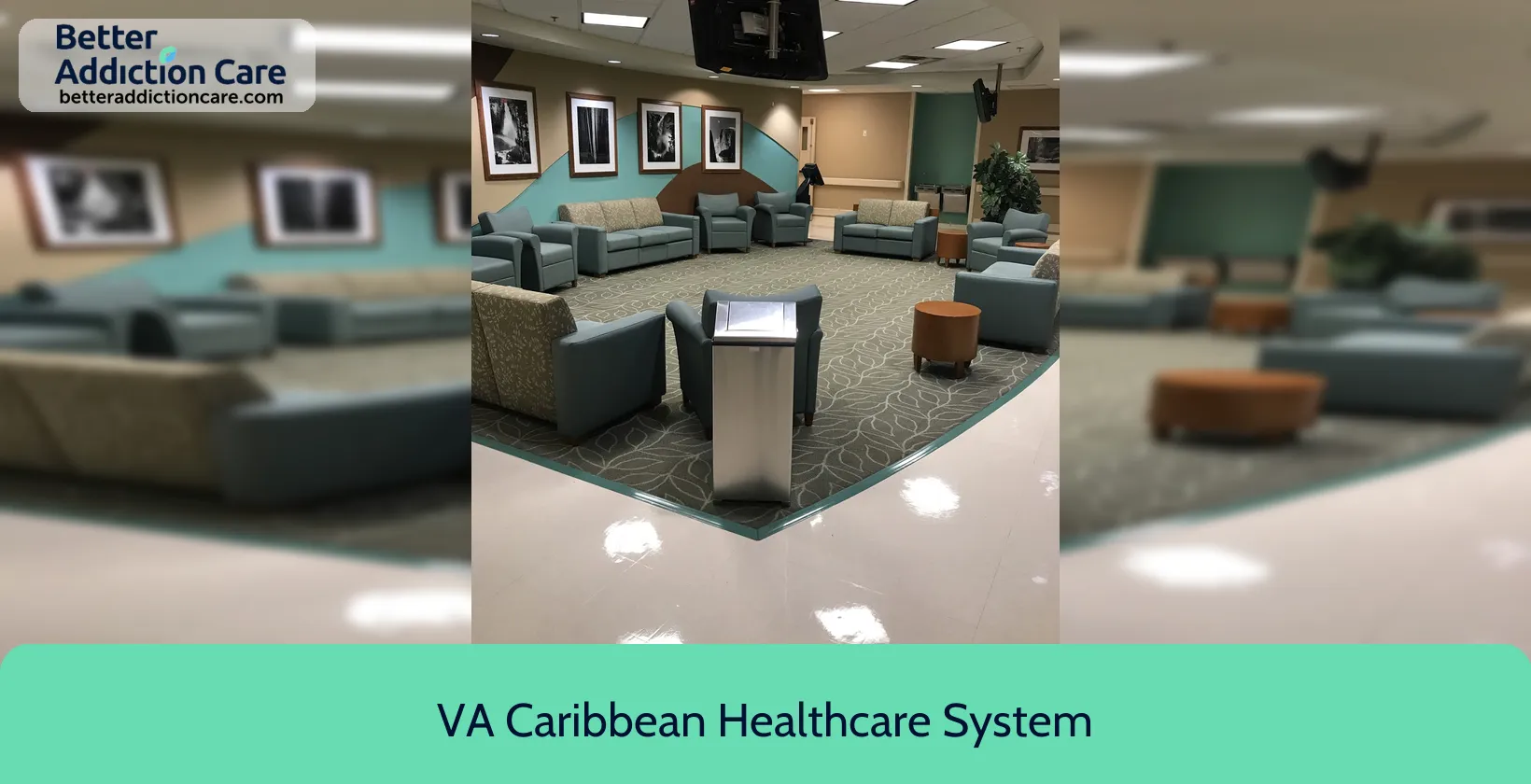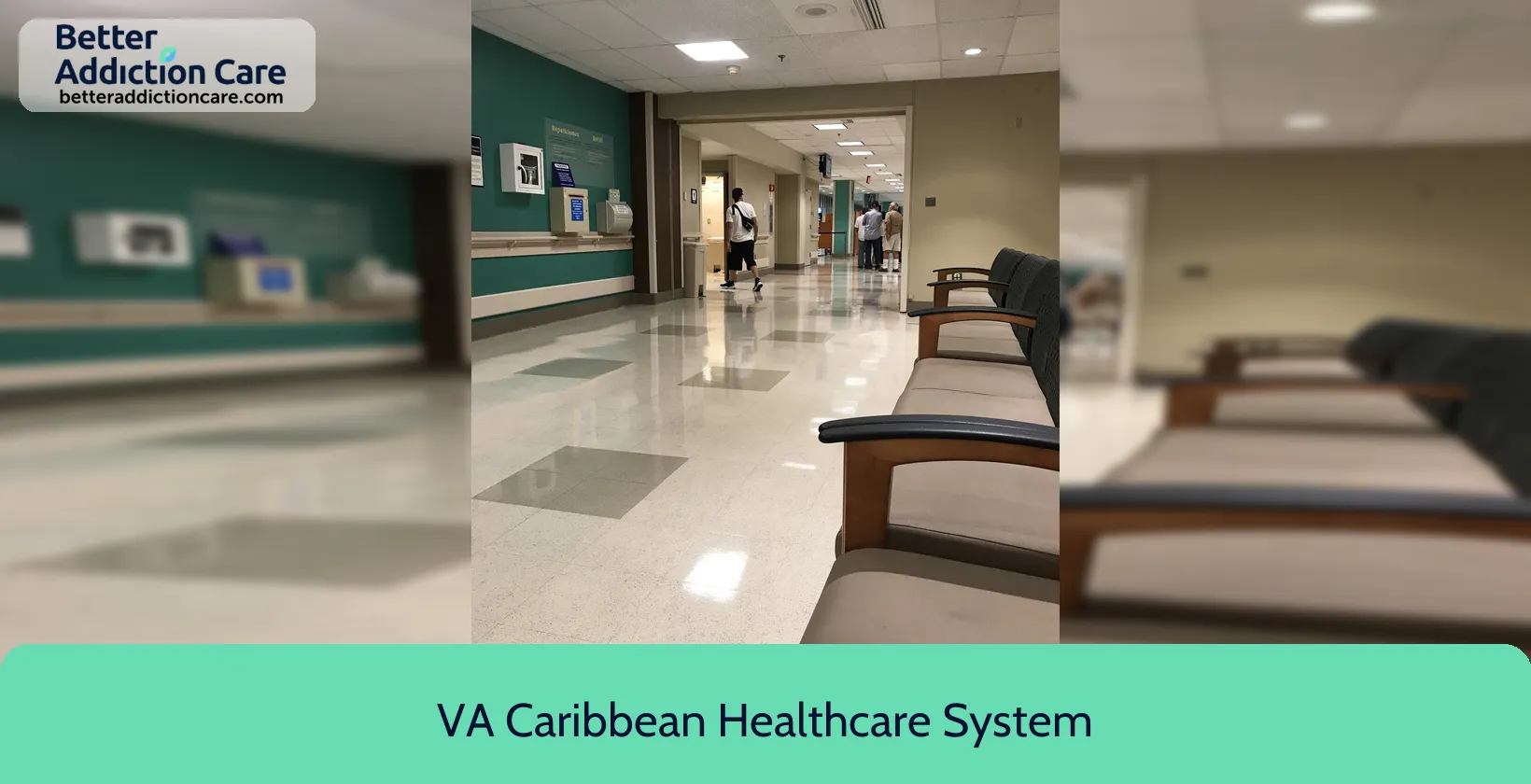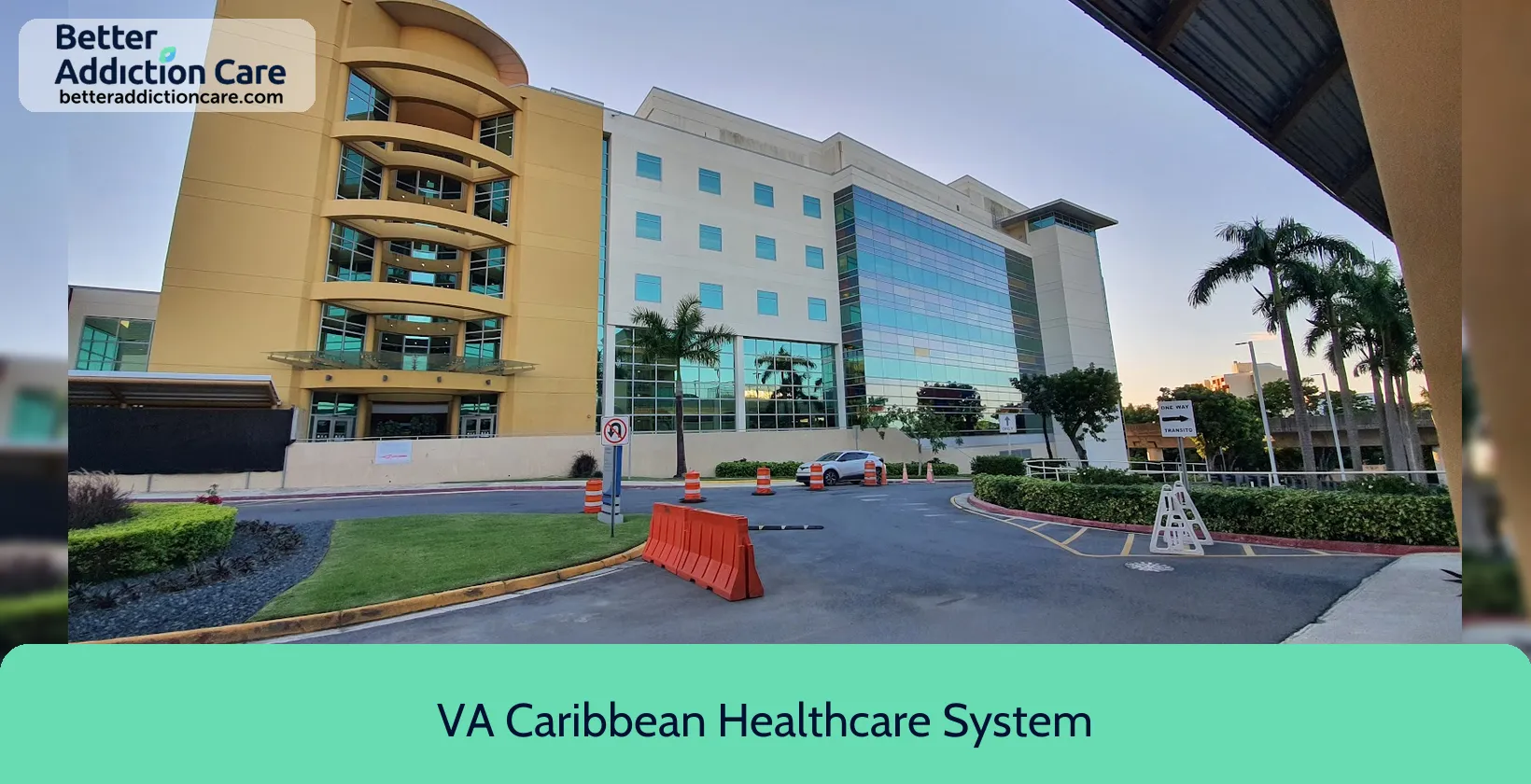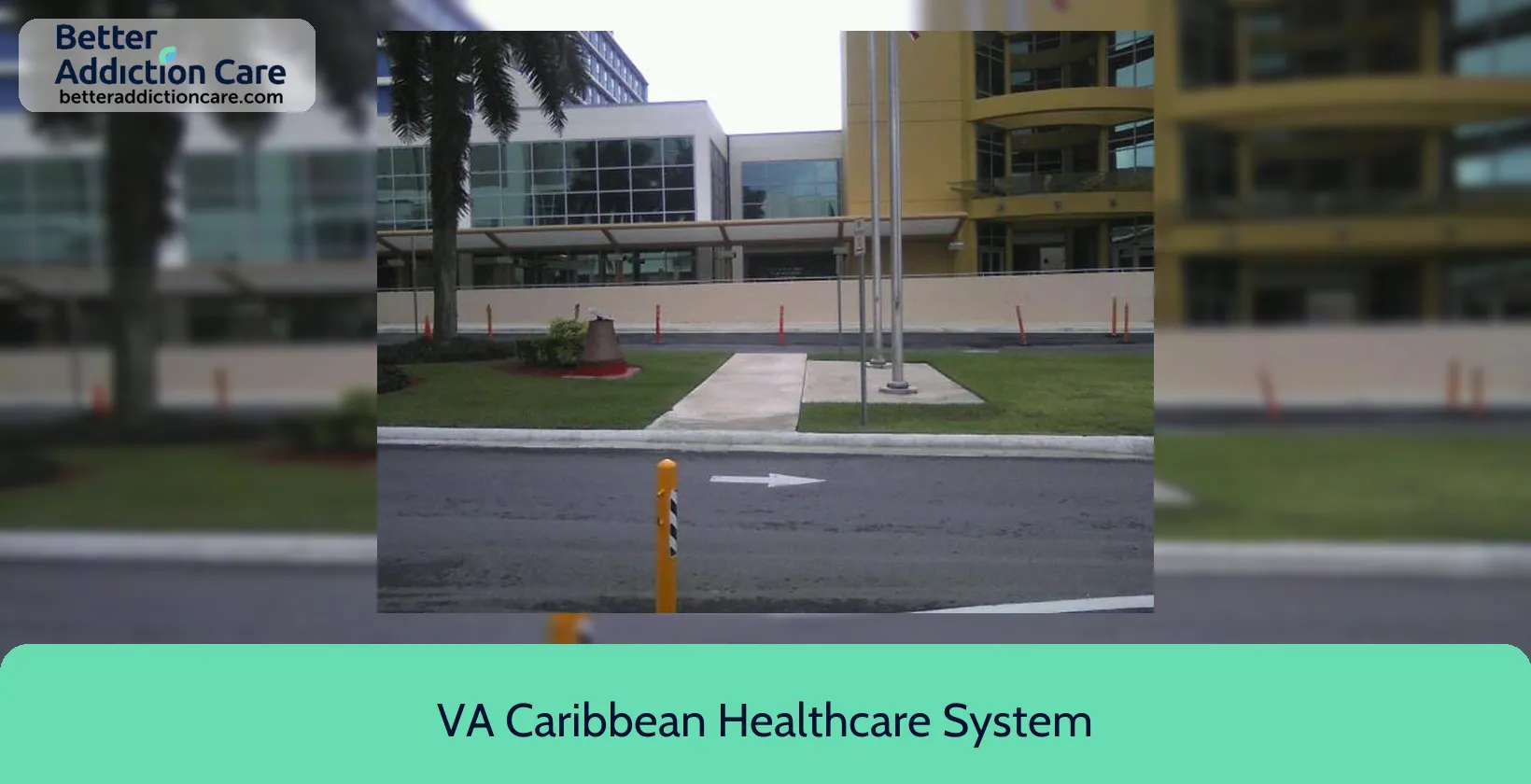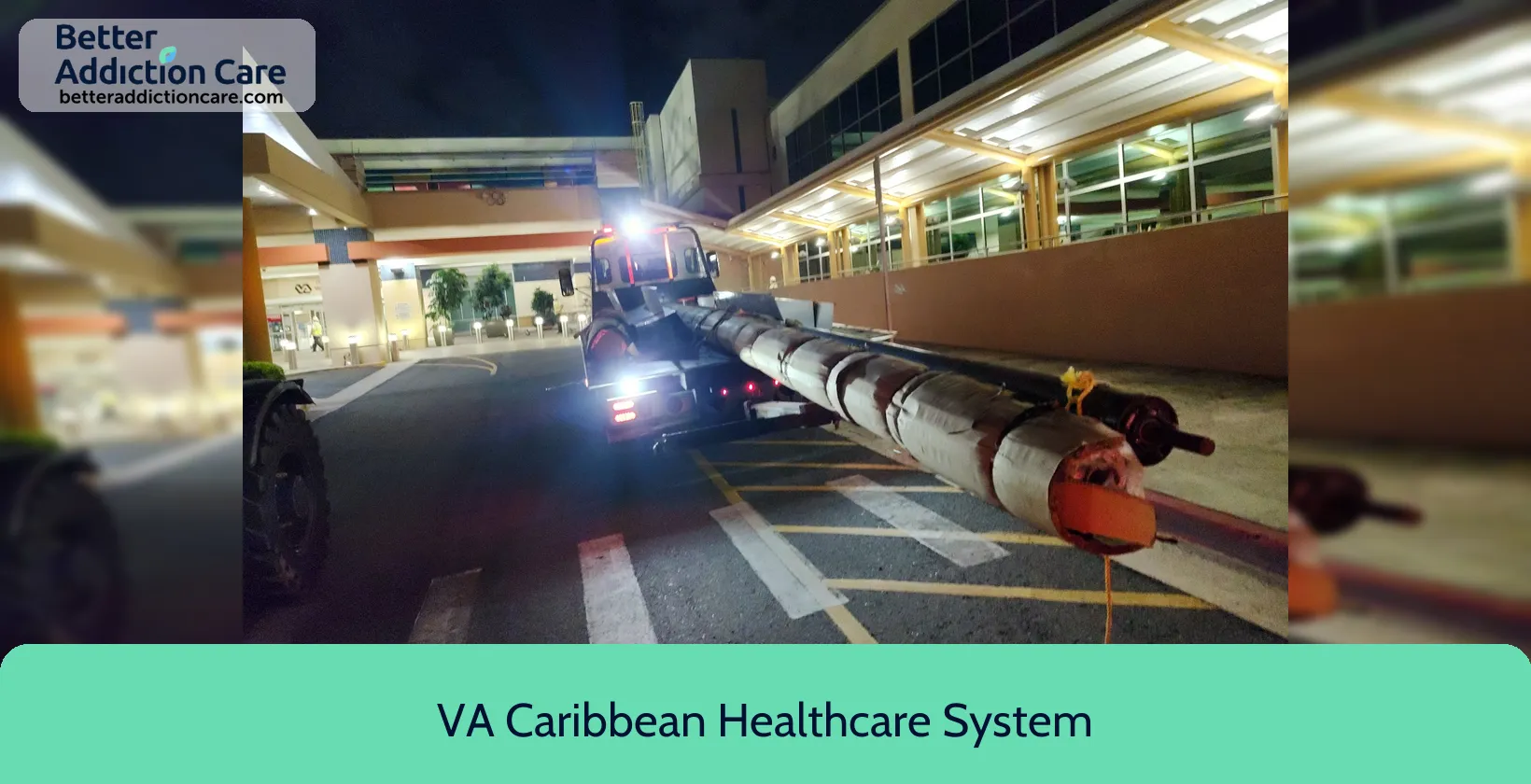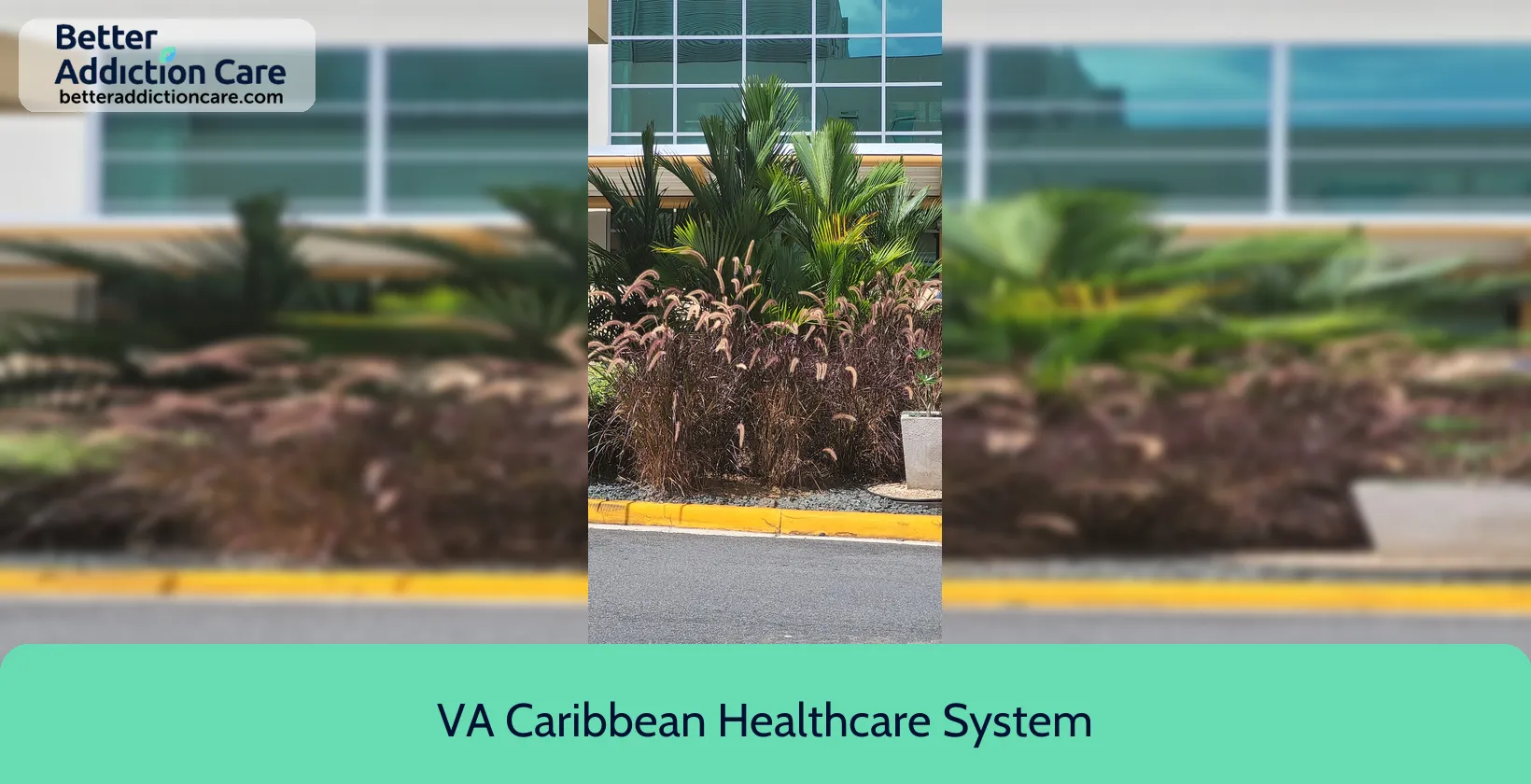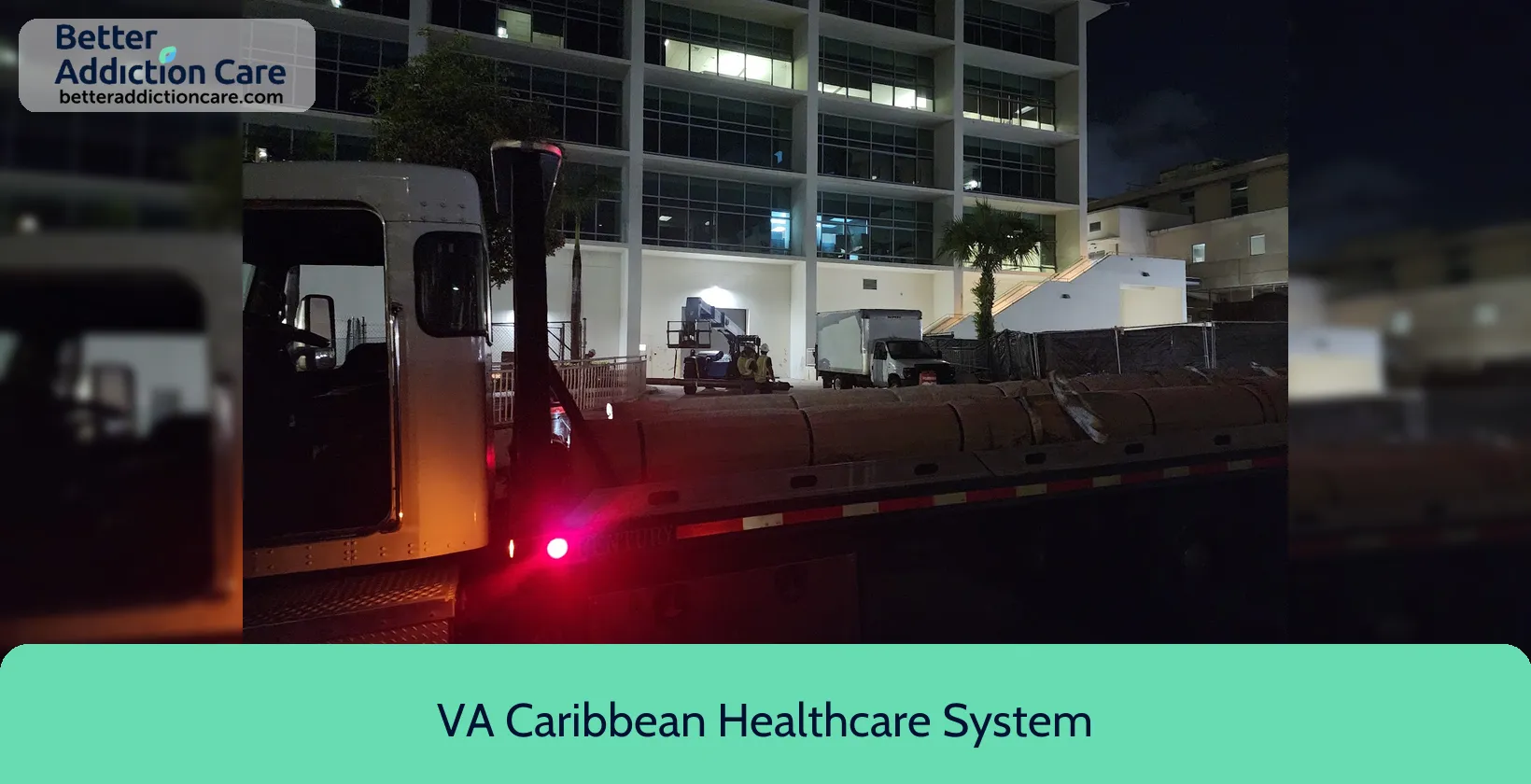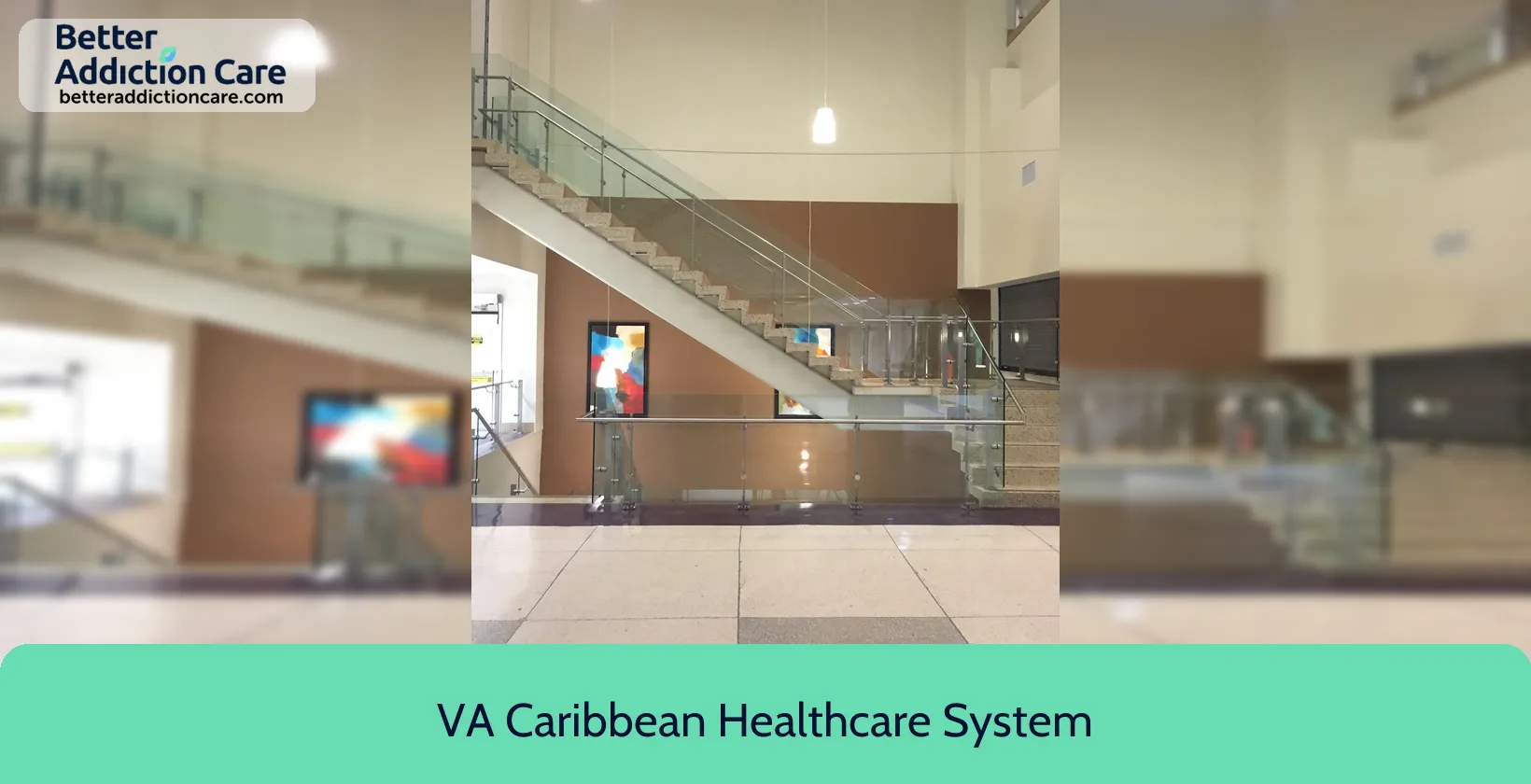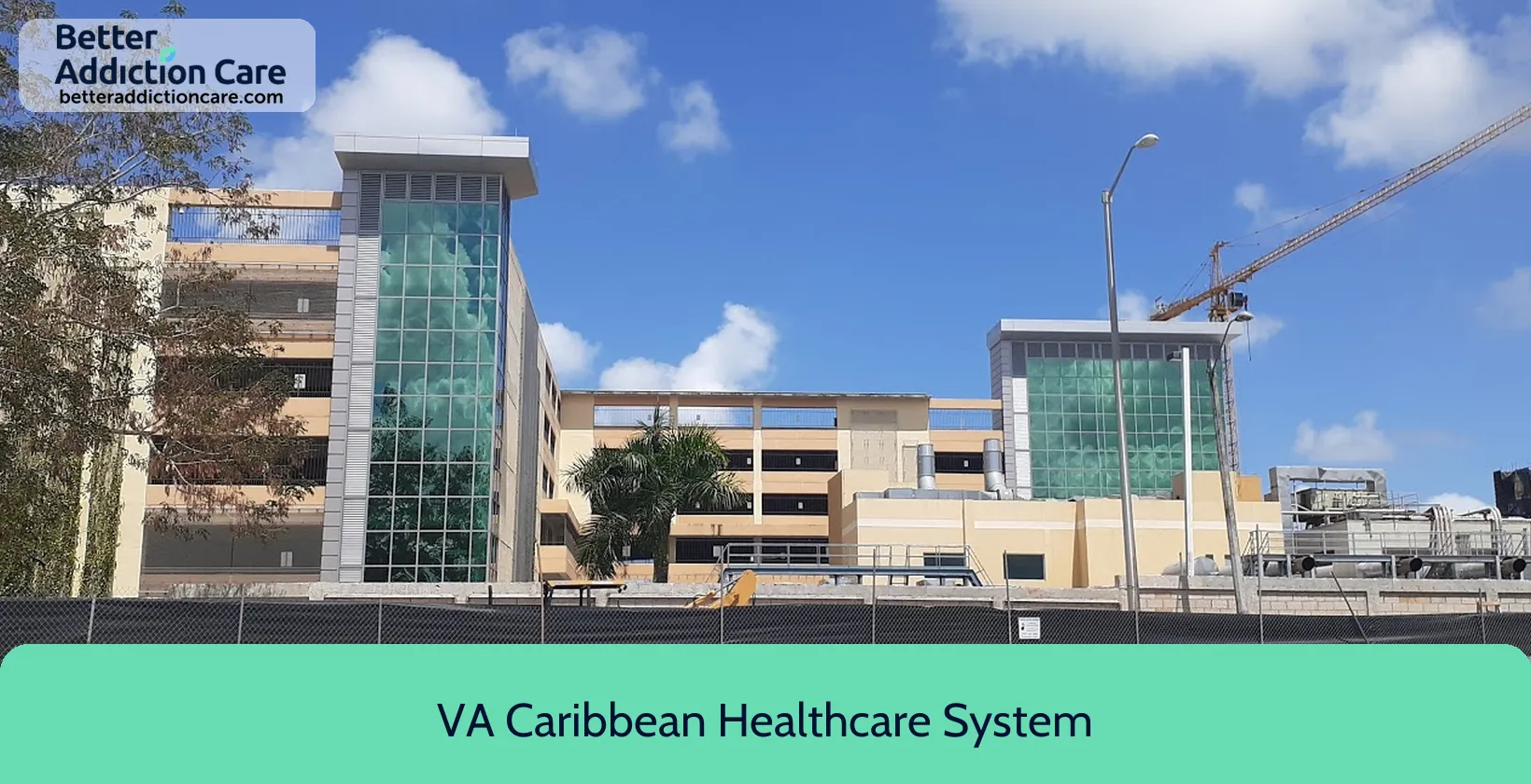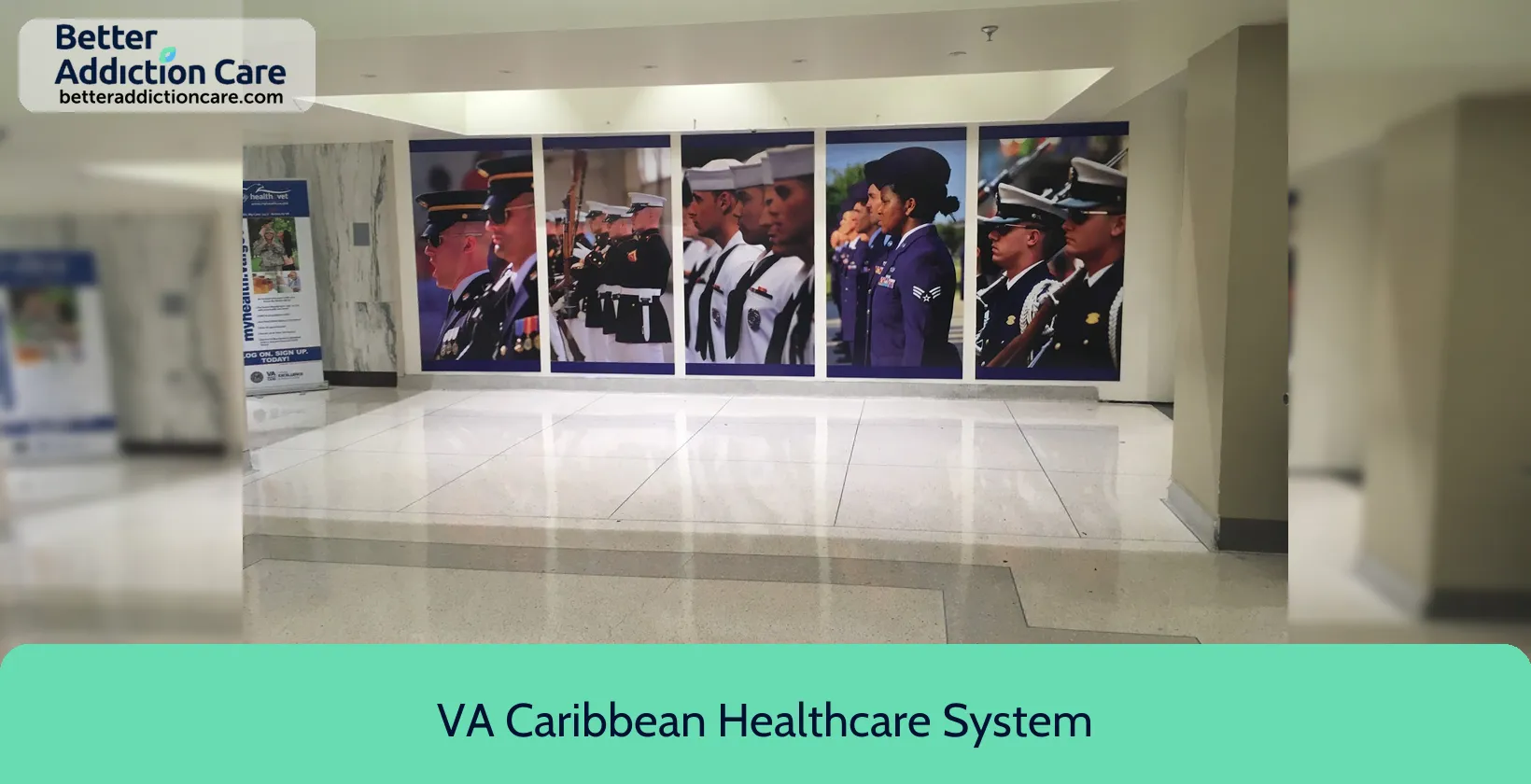VA Caribbean Healthcare System
Overview
VA Caribbean Healthcare System is a substance abuse treatment center for people seeking treatment near San Juan County. As part of their treatment modalities for recovery, VA Caribbean Healthcare System provides 12-step facilitation, family counseling, and individual psychotherapy during treatment. VA Caribbean Healthcare System is located in San Juan, Puerto Rico, accepting cash or self-payment for treatment.
VA Caribbean Healthcare System at a Glance
Payment Options
- Cash or self-payment
- Federal military insurance (e.g., TRICARE)
- State-financed health insurance plan other than Medicaid
- Sliding fee scale (fee is based on income and other factors)
- Medicaid
Assessments
- Comprehensive mental health assessment
- Comprehensive substance use assessment
- Screening for tobacco use
- Interim services for clients
- Outreach to persons in the community
Age Groups
- Young adults
- Adults
- Seniors
Ancillary Services
- Case management service
- Integrated primary care services
- Suicide prevention services
- Acupuncture
- Domestic violence services, including family or partner
Highlights About VA Caribbean Healthcare System
8.09/10
With an overall rating of 8.09/10, this facility has following balanced range of services. Alcohol Rehabilitation: 8.00/10, Drug Rehab and Detox: 9.39/10, Insurance and Payments: 6.67/10, Treatment Options: 8.30/10.-
Drug Rehab and Detox 9.39
-
Treatment Options 8.30
-
Alcohol Rehabilitation 8.00
-
Insurance and Payments 6.67
Accreditations
The Joint Commission:

The Joint Commission accreditation for addiction and behavioral health is a prestigious recognition signifying a facility's commitment to delivering high-quality care and safety for individuals dealing with substance abuse and mental health issues. It involves rigorous evaluations and assessments, ensuring patients receive evidence-based treatment and exceptional care. This accreditation demonstrates a facility's dedication to continuous improvement and ethical practices, building trust among patients and healthcare professionals seeking top-tier addiction and behavioral health services.
SAMHSA certification for opioid treatment program (OTP):
SAMHSA's Opioid Treatment Programs (OTPs) accreditation is a rigorous recognition process that signifies an OTP's commitment to providing high-quality care for individuals dealing with opioid use disorders. It assures patients, families, and the community that the program adheres to evidence-based practices, employs qualified staff, and maintains a safe treatment environment. This accreditation is a symbol of quality and accountability, offering confidence in the program's ability to support individuals on their path to recovery from opioid addiction.
Hospital licensing authority:
The Hospital Licensing Authority is responsible for granting licenses to healthcare facilities, ensuring that they meet the standards and regulations set by the government. Accreditation is a process of evaluation and recognition by a third-party organization, confirming that the hospital meets specific quality and safety standards.
Federally Qualified Health Center:
Federally Qualified Health Center (FQHC) accreditation is a process of evaluation and recognition by the federal government for community health centers that provide comprehensive and accessible healthcare services to underserved populations. FQHC accreditation is essential for centers to receive federal funding and to ensure that they meet standards for quality, patient-centered care.
Treatment At VA Caribbean Healthcare System
Treatment Conditions
- 24-Hour Clinical Care
- Mental health treatment
- Alcoholism
- Opioid Addiction
- Substance use treatment
Care Levels
- Partial Hospitalization Program
- Hospital inpatient/24-hour hospital inpatient
- Intensive outpatient treatment
- Detoxification
- Aftercare
Treatment Modalities
- 12-step facilitation
- Family counseling
- Individual psychotherapy
- Trauma-related counseling
- Group counseling
Ancillary Services
Languages
- Spanish
Additional Services
- Pharmacotherapies administered during treatment
- Mentoring/peer support
- Breathalyzer or blood alcohol testing
Special Programs
- Clients with HIV or AIDS
- Active duty military
- Clients who have experienced trauma
- Persons with post-traumatic stress disorder (PTSD)
- Veterans
Get Help Now
Common Questions About VA Caribbean Healthcare System
Contact Information
Other Facilities in San Juan

6.83
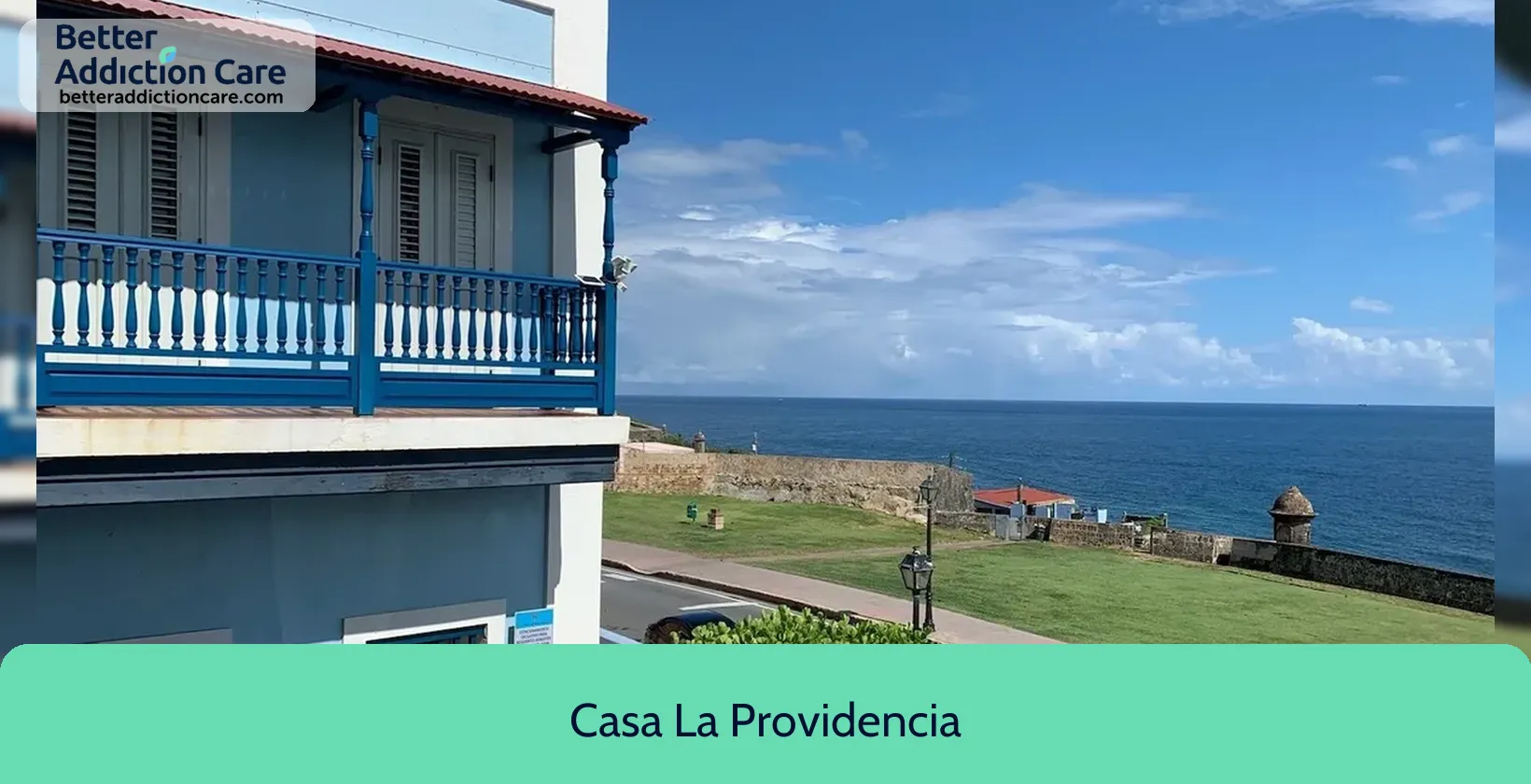
7.25
DISCLAIMER: The facility name, logo and brand are the property and registered trademarks of Casa La Providencia, and are being used for identification and informational purposes only. Use of these names, logos and brands shall not imply endorsement. BetterAddictionCare.com is not affiliated with or sponsored by Casa La Providencia.
